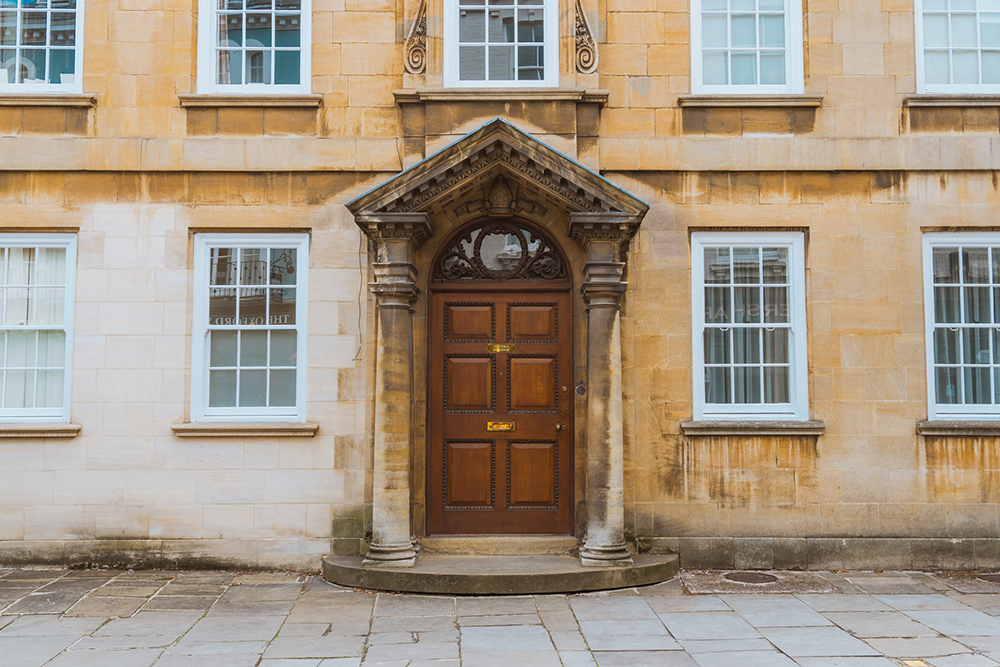Sometimes, when I’m chatting about childhood, at some point it will become clear I went to a boarding school from the age of nine. Reactions can be comical. ‘You poor thing!’ an interlocutor might gasp, gripping my forearm, no doubt picturing cold showers and cruelty. I’ve always responded with bemusement, since my experience largely featured comfort and crumpets.
I loved my prep school – Dorset House in West Sussex. It was a world in itself, enclosed and beguiling. In some ways it was unchanging, such as the graffitied Latin primers which were the same our grandparents had used. Yet it could be surprisingly forward-looking, as when it made a satellite link-up to a school in America, many years before the internet. The school’s ethos, in fact, encapsulated a fine balance between tradition and momentum.
The start of term was always exciting. We would visit a grand shop in London for the uniform, shirts and shorts, which appeared, gorgeously folded, from wooden drawers. Then there was packing, which seemed to take at least a day, the house occupied with bustle. My parents would take a picture of me standing by my battered, inherited trunk at the start of term. I’m only slightly taller than it in the first picture; by the end, I tower over it, still wearing the same tweed jacket, though my long arms now snugly fit the sleeves.
Despite the school sitting in between two genuine castles, there was a distinct lack of ghosts
We weren’t torn from the bosoms of our loving families; far from it. The school was about a 20-minute drive away from our house in rural Sussex. It wasn’t particularly famous, but, being founded in the late 18th century, it ranked among the oldest in the country. Parental involvement was high: there was always a play needing a lion’s head made from an old blanket or a fun run or jumble sale. In those glorious pre-mobile days, we called home with BT Chargecards and wrote letters. Parents (including mine) would visit their sons every Wednesday for walks and a chat. School finished for the week on Saturday mornings after church and so cassocks and old hymn books will forever remind me of the drive home.
Despite the school occupying a manor house and sitting in between two genuine castles, there was a distinct lack of ghosts, which I never got over. That didn’t mean it had no atmosphere. One night, the manor was struck by lightning and all the fire alarms went off. It was the early hours, during an apocalyptic downpour, and we all had to run up the drive in our dressing gowns and slippers. Sitting in the darkened classrooms, lightning flashing and thunder roiling: that was better than any wailing phantom.
The school was made up of 100 boys and a couple of dozen staff members, all dedicated and lively. Our headmaster was civilised and thoughtful and gave us Yeats to read. We were challenged, intellectually speaking. In my top year, aged 12, in our stone classroom by the courtyard, we swotted up on the gerund and the Synoptic Gospels.
The school had its idiosyncrasies. If you were lucky, you could be made Duck Monitor. This meant collecting a bucket of slop from the kitchens and, as the mist rose up in the early morning light, doling it out to the happy, splashing ducks. Even better was Cocoa Monitor, on winter afternoons, with the dark drawing in. Though it felt like we lived in a timeslip, we weren’t entirely untouched by popular culture. We had a couple of CDs in the barn: Queen, and, oddly enough, Nirvana. The irony of a hundred boys in corduroys, the sons of solicitors and farmers, head-banging to those bands’ nihilistic songs was lost on me then. Otherwise, the outside world hardly figured. When there was sparkling frost on the ground and we were preparing for the carol concert, you could almost imagine that nothing had changed for centuries.
Boarding prep schools are more than simply education factories. They are, at first, enormous families, from headteacher to kitchen and grounds staff, from hulking prefect to teensiest pre-prepper. They also fully extend into their local communities. My teachers would take part in the village amateur dramatics society, and the school had a close connection with the church. A school like mine is a living organism, deeply embedded into the local fabric. Tear it out and it will leave deep scars.
The Napoleonic Wars didn’t close my prep. Nor did the Industrial Revolution, the first and second world wars, the financial crisis or the pandemic. But will it, and many others like it, withstand Bridget Phillipson, Rachel Reeves and Sir Keir Starmer? These politicians, despite their good intentions, dislike eccentricity; they dislike competition; they cannot stand tradition. They hate what they did not have and they want no one else to have it. What kind of an ideology is that?
Schools have always been inventive and innovative: they’ll have to be more so. And I hope that children will sit by the banks of that river, learn their Latin, eat crumpets and dream of knights galloping between castles, for decades more to come.







Comments